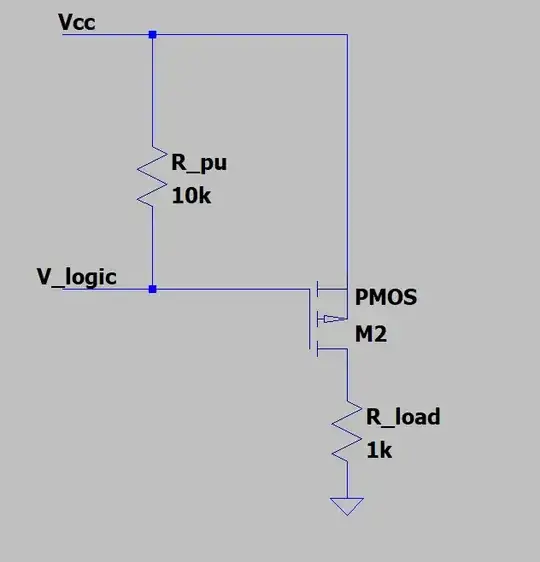Very quick question:
Assuming I am using a pmos as a high side switch and my supply voltage and the voltage at the gate I want to switch the transistor with (V_logic) are the same. I usually find something like this:

Now I actually don't quite understand why I need the pullup here. Wouldn't the circuit work just fine without it as well?